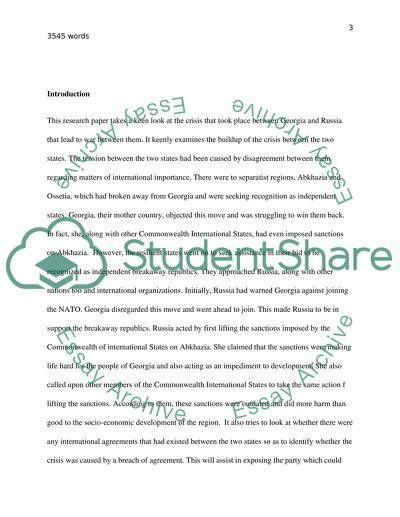Cite this document
(“Russia-Georgia conflict Research Paper Example | Topics and Well Written Essays - 3500 words”, n.d.)
Retrieved from https://studentshare.org/history/1396475-the-russia-georgia-conflict
Retrieved from https://studentshare.org/history/1396475-the-russia-georgia-conflict
(Russia-Georgia Conflict Research Paper Example | Topics and Well Written Essays - 3500 Words)
https://studentshare.org/history/1396475-the-russia-georgia-conflict.
https://studentshare.org/history/1396475-the-russia-georgia-conflict.
“Russia-Georgia Conflict Research Paper Example | Topics and Well Written Essays - 3500 Words”, n.d. https://studentshare.org/history/1396475-the-russia-georgia-conflict.


